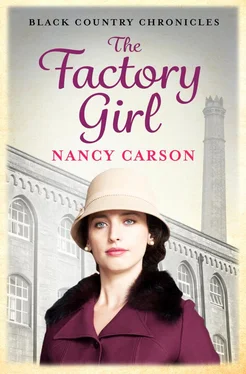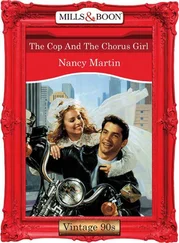‘Oh, Alice, I despair of you…’
They turned into the entry on tiptoe, lest their footsteps announced their return. The door to the brewhouse was shut and the house was in darkness. At least Herbert, and Maxine their younger sister, had gone to bed. Henzey lifted the door latch and entered. Embers slipped in the blackleaded grate, prompting a flurry of sparks to shoot up the chimney, but affording sufficient light for her to see where she was going. She felt on the mantelpiece for a spill, and kindled it in what remained of the fire. As it flared, she reached for the oil lamp that resided on the windowsill and lit it, trimming the wick to give less smoke. The old black marble clock said five to twelve. She turned and saw that the door to the cellar was shut. She rounded the old horsehair sofa her father always used to lie on, reached out and lifted the latch as quietly as she could. Her mother’s coat was not hanging there. She breathed a sigh of relief.
‘Upstairs, quick,’ she whispered. ‘She’s not back yet. And, in the morning, when she asks how we got on, say we had a smashing time.’
‘I had a smashin’ time anyway.’
The back room at George Mason’s grocery store in Dudley Market Place was where the female staff ate their sandwiches and made pots of tea. It was small and whitewashed. The glass on the outside of the tiny iron-framed window, that afforded it some daylight, had not been cleaned in two decades, but a pair of second-hand chenille curtains had been hung at it years ago. A couple of creaky chairs with fraying squabs furnished it, along with a torn seat lifted from a charabanc that had been involved in a road accident. A brass tap rhythmically dripped cold water into a stone sink and, on top of a scrubbed wooden draining board, stood a gas ring, a black enamelled kettle and a selection of odd cups and saucers. In this room, secrets were revealed, souls were bared and an infinite amount of gossip was examined and disseminated.
Talk was usually about men. Henzey wondered how some of these girls she worked with got themselves into the cumbersome situations they confessed to, and decided they must be as immature as the boys they associated with. For instance, poor Rosie Frost, one of her workmates, had become involved with a young lad who was wanted by the police for burglary. He was lodging with Rosie and her widowed mother, using it as a safe house, abusing their good nature. At one of their dinnertime discussions, Rosie confessed she was having his child.
‘And do you love him?’ Clara Maitland asked. Clara was thirty, a childless widow, and a fine-looking woman, who was indifferent to the advances of optimistic suitors. She was well-fleshed but not overweight, her figure unsuited to the will-o’-the-wisp, boyish look that was in vogue; Clara had feminine curves and wore affordable clothes that tastefully accentuated them.
‘No, can’t say as I do,’ was Rosie’s half-hearted reply.
‘Then you’re a very silly girl, Rosie. Does your poor mother know you’re pregnant?’
Rosie shook her head and looked guiltily into her lap.
‘How do you girls get yourselves into such awful trouble? You must want your head looking, Rosie. Get rid of him; that’s my advice. Get rid of him…How old are you?’
‘Eighteen.’
‘Eighteen, and pregnant by a wanted criminal. My God! Wake up, child, and make something of yourself, and do it while you’ve still got the chance. Then when you’ve done that, try and find yourself somebody decent. Life’ll be a lot easier, take it from me. A lot easier.’
Rosie sighed heavily. ‘It’s easy to say find somebody decent. But who? Anyway, if I am pregnant, it’s me own fault.’
‘Your fault? I’d have thought he’d had a part in it, Rosie,’ Clara suggested wryly. ‘It takes two, you know. Some men are all too keen to take advantage of girls. They promise you the earth. You should’ve been firmer with him. You should have said no. You should’ve told him you’d have no truck with doing things you ought not to be doing unless you’re wed. You should’ve told him – if he wanted that , he should give up his burgling and make a decent, honest living by working, like the rest of us have to, and then marry you. Good God, what’s the world coming to?’
Clara was in full flow, but she took another bite from her sandwich and munched it while she waited for the reaction of her younger workmates.
‘I’d never marry ’im, Clara,’ Rosie said, and licked jam off her fingers. ‘I’ve been a proper fool, but I’m stuck with it now.’
Clara flicked breadcrumbs from her apron. ‘Well the doctor can’t get rid of it for you. It’d be more than his life’s worth. But I daresay there’s some old women who know how, if that’s what you wanted. It’s always risky though.’
‘No, I’m gunna have the child, Clara.’
Edie Soap, whose real name was Edie Hudson, had been listening while she filled the kettle and put it on the gas ring to boil. She sat down on the charabanc seat.
‘And you, Edie,’ Clara said, ‘just mind what you’re doing with that Arnold Jennings.’
Edie adjusted the fall of her apron and opened her sandwich tin. ‘Doh thee fret, Clara,’ she returned, in her deep voice. ‘I’n sid enough o’ that Rosie’s plight. I’m keepin’ me legs crossed an’ me drawers on. Me fairther’d kill me if ’e thought I was lettin’ any chap interfere wi’ me. Besides, I’m afeared. Our Araminta says it ’urts vile the fust time. ’Er says it doh ’alf mek yer yowk.’
Clara smothered a chuckle. ‘It can be a lot of pleasure with somebody you love.’
‘Arnold’s younger than you, isn’t he, Edie?’ Henzey commented, as she stood up to stir the tea in the pot.
‘By a year. I’ve took to ’im a treat, but the trouble is, I doh think I can stand ’is moods for long.’
‘What makes him moody?’ Henzey asked.
‘Sayin’ no to ’im,’ Edie answered. ‘He’s like a bear with sore arse.’
‘Well, you know what some of these young men are like,’ Clara warned. ‘They only care about themselves. Things are different now to how they were before the war. A lot different. There are more girls than boys now, so to some extent boys can take their pick. Trouble is, because of it, the boys expect the girls to be easy. Well don’t be…You mustn’t be.
‘I remember years ago my mother telling me about one of her friends, Bessie Hipkiss. She was in service at a really well-to-do house in Birmingham. Anyway, she fell in love with the master’s son, and they had an illicit affair for a while. Long enough for him to put her in the family way, anyway. But when poor Bessie asked him what they should do about it, he said the child couldn’t possibly be his and sacked her for her trouble. She was broken hearted. All she’d got were the wages they sent her away with and the clothes on her back – and nowhere to live. As it happens, she remembered my grandfather and came straight to him for help. Her parents knew him well when they were alive, you see. She didn’t want to be a burden, though. She just wanted the chance to make her own way. It turned out that he’d got an empty house – he was quite well off and owned some property – and he let Bessie have it for nothing. It was only a little back-to-back in Flood Street, and you know what a slum it is down there. Damp as the Dudley Tunnel, it was, and overrun with vermin. But she was glad of it. The trouble was, when she gave birth, she didn’t have just one child, did she? Oh, no, not Bessie. She had twins – both boys, and like peas in a pod, my mother always said.’
‘Twins?’ Henzey exclaimed. ‘Just imagine being in all that trouble, then having twins.’
Читать дальше












